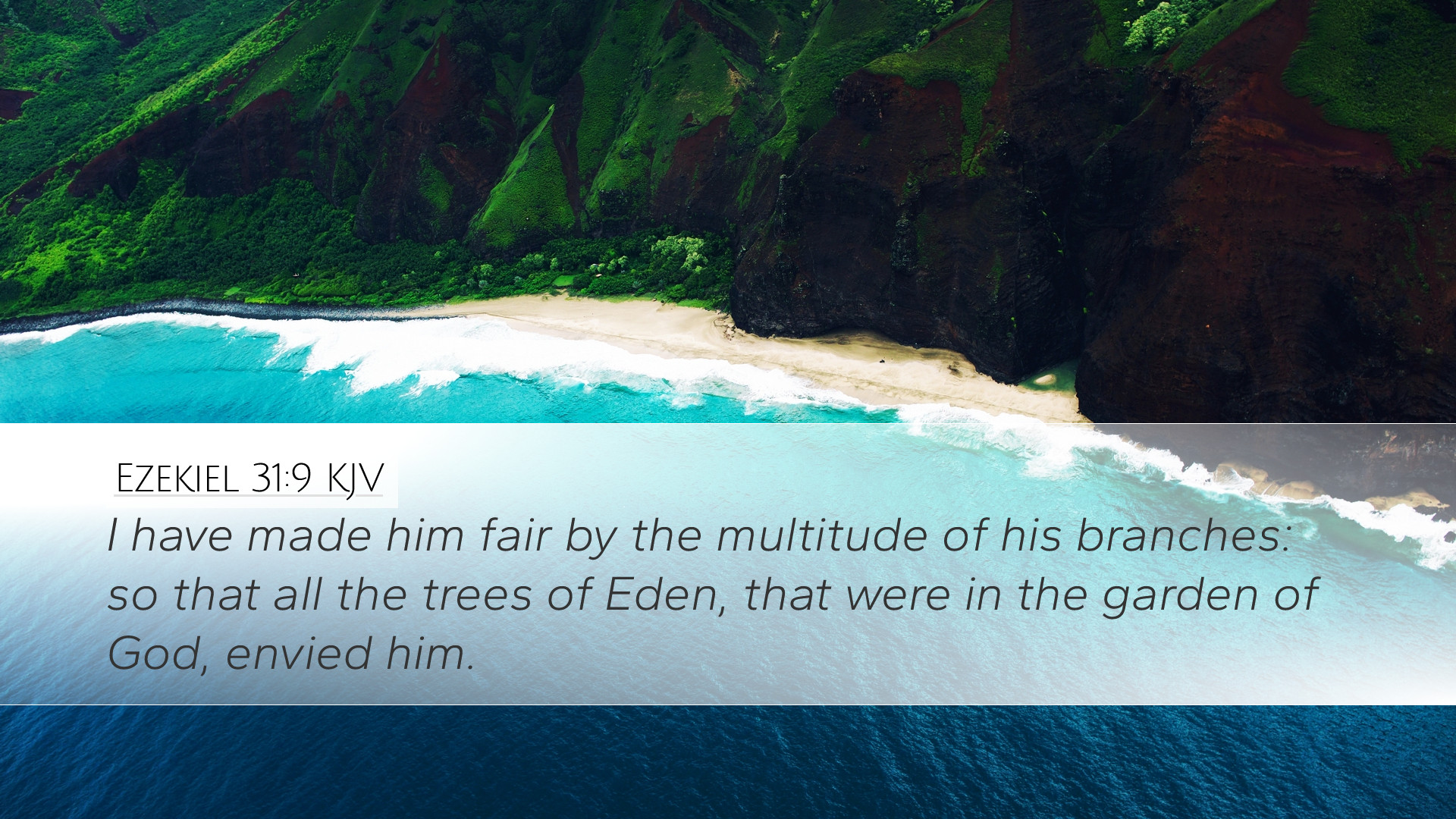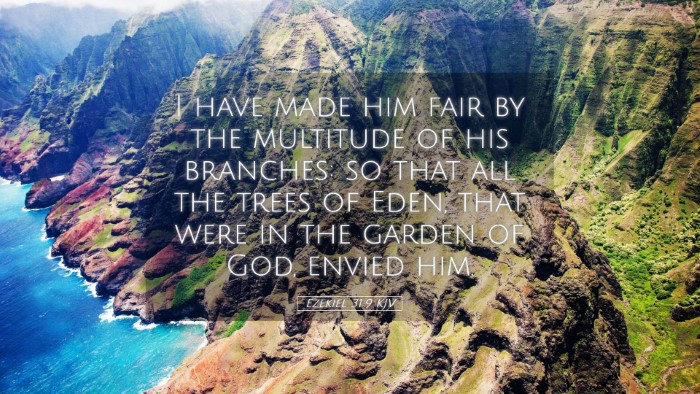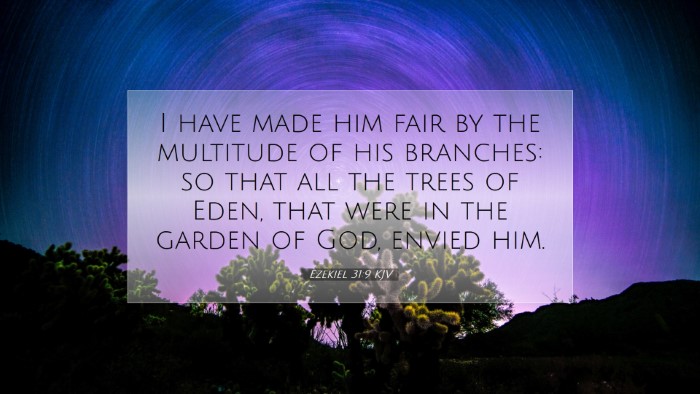Commentary on Ezekiel 31:9
Bible Verse: Ezekiel 31:9 - "I made the nations to shake at the sound of his fall, when I cast him down to hell with them that descend into the pit: and all the trees of Eden, the choice and best of Lebanon, all that drink water, shall be comforted in the nether parts of the earth."
Overview and Context
This verse is part of a profound allegorical narrative in which the prophet Ezekiel uses the imagery of a magnificent cedar tree to symbolize the grandeur of Egypt and its eventual downfall. The surrounding context includes a lamentation over Egypt’s demise, reflecting God's sovereignty in judging nations and individuals. This commentary draws insights from various public domain sources to elucidate the depth of meanings encapsulated within Ezekiel 31:9.
Interpretational Insights
1. The Majesty of Egypt:
- Matthew Henry notes that Egypt is likened to a mighty tree, showcasing its historical significance and power over surrounding nations. This imagery serves to reinforce Egypt's initial strength before the prophesied judgment.
- Albert Barnes emphasizes that the tree symbolizes not just physical power, but also the pride and arrogance of Egypt, which ultimately leads to its downfall.
2. The Role of God's Judgment:
- Adam Clarke asserts that the 'sound of his fall' represents God's decisive act of judgment against Egypt for its idolatry and rebellion. It underscores that no earthly power can withstand divine authority.
- As Matthew Henry points out, God's intentions are made clear through this allegory; He is in control of history and directs the rise and fall of nations.
Theological Implications
The text presents a rich tapestry of theological implications worthy of deep exploration:
- God’s Sovereignty: Throughout Ezekiel, we see a clear depiction of God as sovereign over all nations. The narrative infers that nations can become instruments for divine purposes, even in their punishment.
- Idolatry and Pride: The pride that accompanies great power is a recurring theme in the Scriptures. The fall of Egypt serves as a cautionary tale about the dangers of pride and the easy shift from prosperity to desolation.
- The Hope of Restoration: Even in judgment, there is a thread of hope. God's discipline leads to the opportunity for repentance and restoration, an insight reflected in the comfort mentioned for the trees of Eden.
Application for Today
This verse resonates with contemporary issues surrounding power, pride, and the ultimate accountability of nations and individuals. Pastors and theologians can draw several applications:
- Recognition of Divine Authority: In a world where human powers often rise proudly, the reminder of God's supreme authority serves as a grounding truth for believers. This verse challenges us to yield to divine governance rather than human arrogance.
- Understanding Consequences: Just as Egypt faced dire consequences for its rebellion, there exists a principle of sowing and reaping that applies to both individuals and nations today.
- Embracing Humility: The narrative invites leaders and congregants alike to foster humility, recognizing that true strength lies in reliance on God rather than on personal or national power.
Conclusion
Ezekiel 31:9 serves as a profound reminder of God's ultimate power over nations and individuals. The rich imagery and the allegorical nature of this passage invite deeper study and reflection. Through the insights of scholars like Matthew Henry, Albert Barnes, and Adam Clarke, we glean profound truths about pride, judgment, and God’s sovereignty. As churches and believers engage with this text, we are called to submit to God's will, recognizing the fleeting nature of earthly power and the enduring strength of divine authority.


